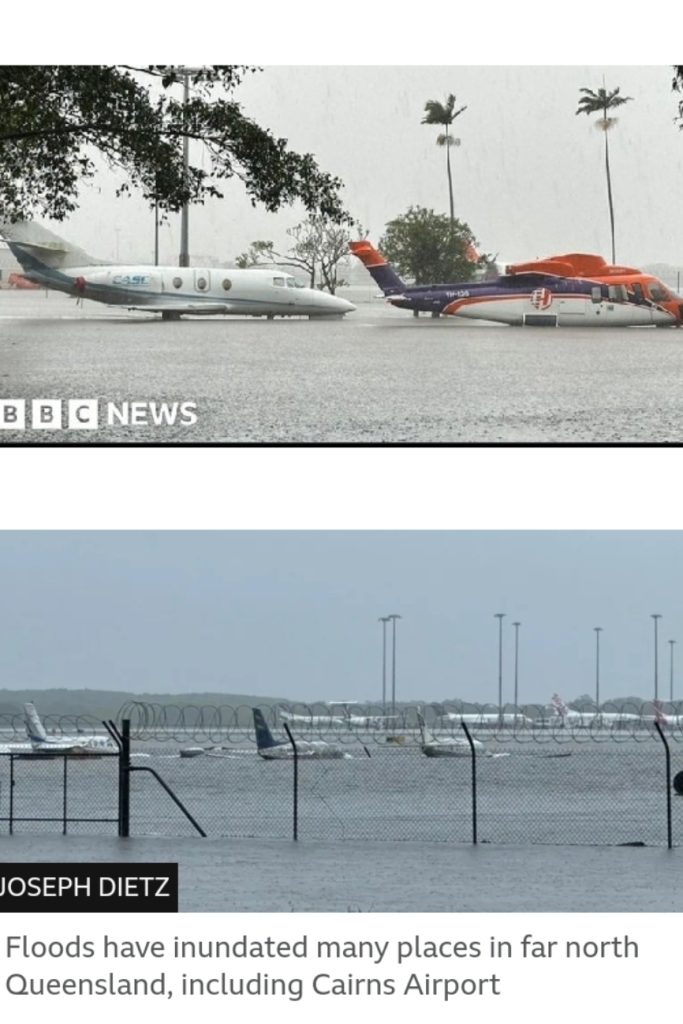Record rainfall is causing widespread flooding in far north Queensland, in what authorities expect will be the Australian region’s worst-ever flood.
Thousands of people have been evacuated but others remain stranded.
Extreme weather driven by a tropical cyclone has dumped a year’s worth of rain on some areas.
Images from the region show planes submerged at Cairns airport, a crocodile seen in the middle of a town, and people fleeing homes in boats.
So far no deaths or missing people have been reported, but a 10-year-old girl is in a critical condition after being struck by lightning in Cairns on Saturday.
Intense rainfall is expected to continue for another 24 hours.
Hundreds of people have been rescued – with many homes inundated, power and roads cut off and safe drinking water dwindling.
The city of Cairns has received more than 2m of rainfall since the weather event began.
Queensland Premier Steven Miles told the Australian Broadcasting Corporation the natural disaster was “about the worst I can remember”.
“I have been talking to Cairns locals on the ground… and they say they have never seen anything like it,” he said.
“For someone from far north Queensland to say that, that is really saying something.”
He said the immediate concern was getting those trapped in rising waters to safety, like those in the remote town of Wujal Wujal, about 175km (110 miles) north of Cairns.
Nine people – including a sick child – spent the night on the roof of the hospital after emergency crews were unable to reach them.
The group on Monday were relocated to another spot, but Mr Miles said the entire town would now need to be evacuated.
“After that, we have concerns about drinking water, about sewerage, power and telecommunications, the roads – many of the roads are blocked and we can’t get aerial support in.”
Forecasters said the torrential rain would continue for most of Monday and coincide with a high tide, intensifying the impact on low-lying communities.
While the rain is expected to begin easing on Tuesday, rivers are yet to peak and will remain swollen for days.
Several rivers are expected to break records set during a mammoth flood event in 1977. The Daintree River, for example, has already exceeded the previous record by 2m, after receiving 820mm of rain in 24 hours.
State officials estimate the toll of the disaster will top A$1bn (£529,000; $670,000).
Eastern Australia has been hit by frequent flooding in recent years and the country is now enduring an El Nino weather event, which is typically associated with extreme events such as wildfires and cyclones.
Australia has been plagued by a series of disasters in recent years – severe drought and historic bushfires, successive years of record-breaking floods, and six mass bleaching events on the Great Barrier Reef.
A future full of worsening disasters is likely unless urgent action is taken to halt climate change, the latest UN Intergovernmental Panel on Climate Change (IPCC) report warns.
(BBC)
Queensland Floods: Airport Submerged, Crocodiles Seen After Record Rain
